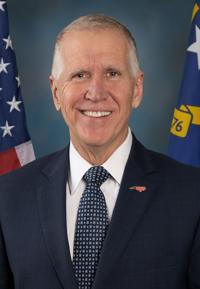(The Center Square) – Citing broken promises and unpaid response costs, the East Palestine City District Board of Education sued Norfolk Southern on Wednesday.
The board’s lawsuit wants $30 million to recover losses it says it incurred as a result of the Feb. 3, 2023, train derailment that led to a toxic chemical burn and economic and environmental concerns across two states.
“This disaster upended our students’ lives,” East Palestine Superintendent James Rook said in a statement. “Norfolk Southern promised it would not ‘walk away’ and would help our community ‘recover and thrive.’ But Norfolk Southern did walk away from our students. East Palestine has not recovered from the perception of contamination and long-term health consequences. Student enrollment fell significantly in 2024 and will continue to fall because Norfolk Southern has broken its promises to ‘make it right.’ The impact on our students is heartbreaking. Our district will hold Norfolk Southern to its promises so we can continue to give our students the education they deserve.”
The Center Square was unsuccessful before publication getting comment from Norfolk Southern on the lawsuit.
The suit, filed in the U.S. District Court for the Northern District of Ohio, says Norfolk Southern did not live up to its commitment to reimburse emergency response costs, including using school facilities as a command center.
The school system also helped house and transport residents during mandatory evacuation orders.
The district says Norfolk Southern backed out of building a $30 million community wellness center at the school. The lawsuit says Norfolk Southern’s contractor established the cost.
Finally, the district says the derailment lowered property values and residents’ incomes in the area, which directly impacts school finances.
The school lawsuit follows another federal lawsuit filed in early February by 744 current and former East Palestine residents against Norfolk Southern, the U.S. Environmental Protection Agency, the U.S. Centers for Disease Control and Prevention, and other state agencies.
Those plaintiffs say the defendants have downplayed the impact of the chemical contamination.
As previously reported by The Center Square, the village and Norfolk Southern announced in January a settlement to resolve all claims from the derailment. Norfolk Southern agreed to pay $22 million for priorities identified by the village in connection with the derailment.
In September, also as previously reported by The Center Square, a federal judge approved a $600 million settlement that covered residents, property owners and businesses within 20 miles of the derailment site and chemical release.
That settlement called for personal injury payments of $25,000 for those within 2 miles of the derailment and about $1,000 for those 5-10 miles away.
Also, those within 2 miles of the site were scheduled to receive $70,000 per household in direct payments, lowering by distance to about $250 per household for those from 15-20 miles away from the derailment site.
That settlement was separate from the U.S. Department of Justice’s $310 million settlement with Norfolk Southern. That deal came in the National Transportation and Safety Board’s final report.
At about 9:30 p.m. on Feb. 3, 2023, 53 Norfolk Southern train cars derailed in East Palestine, leading to a vent and burn of toxic chemicals.
At a public hearing in June 2024 in East Palestine, National Transportation and Safety Board Chairwoman Jennifer Homendy called Norfolk Southern’s attempts to sway the investigation unprecedented and reprehensible.
She reiterated the board’s finding that the eventual vent and burn following the crash was unnecessary, and the report said the crash could have been avoided.
It blamed the crash that forced the evacuation of more than 2,000 residents on the wheel bearing of rail car 23, which caught fire, causing the axle to fall off and derail the train.
The final report confirmed initial findings released a year ago and previously reported by The Center Square.


















































